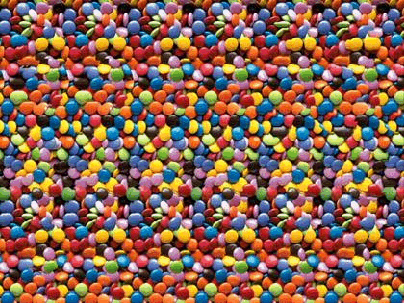As computers become more powerful and video games get increasingly better graphics, the prospects of true "virtual reality" are seemingly around the corner. There is tremendous allure to the escapism of a cinematic world where "anything is possible." Immersive technologies would be the ultimate game interface--letting you feel any extent of pleasure or pain that you liked. You could go anywhere or do anything, with money as no object and without physical danger or moral consequence!
Flash forward now to the day when you can actually put the electrodes on your head and turn on the power to your "sensory game unit." Next, imagine that the ordeal is so convincing that you believe it could be used to mimic an experience as rich your own life. Wouldn't you be a little suspicious when you yell out "stop game" and return to your living room? How could you ever tell you had returned to "reality" and that you are not still in the simulation?
To put it more simply: either Virtual Reality is too crappy to convincingly model your life before plugging into it, or it's so good that there's no reason it couldn't model what your life would be like once you unplugged. Staying out of Virtual Reality chambers isn't going to help you, of course. However you grok it, the upshot of the reality problem is the following:
either it's impossible to immerse yourself completely in an alternate universe from the one you live in
-OR-
you can't prove any particular pre-requisites (such as a hardware device, or living in a particular time period) are needed in order to participate immersively in another reality
Though cyberpunk movies like to show us lots of flashy gadgets plugging into your neural cortex, all that technology can be a gimmick playing upon your beliefs of the current immersive state. One of the easiest ways to "plug in" to another world is the mechanism of suspension of disbelief, which can be as simple as letting yourself get lost in watching a movie. Although it may seem like a stretch to imagine an experience as complex as three-dimensional-immersive-reality communicated through a video image, there's a hint of what kind of brain acrobatics are possible with "Magic Eye" posters.
The premise of these posters is that they are a flat picture which if you look at it in a special way, you can see something decidedly three-dimensional. It's a little hard to describe, because what you are seeing isn't really the same kind of 3D vision we experience. Elements of the scene don't have individual colors, it's just the original image wallpapered all over everything. But there is indeed depth embedded in the pattern.
Here's an example:
To the casual observer, this looks like just a bunch of candy. But because of the way the picture is produced, I can actually see something three-dimensional if I look at it cross-eyed in a particular way. If I do this, I see a field of floating spheres...and it so happens that lots of people can see those spheres. Yet if I were the only person who could see them, everyone would think I was making the phenomenon up!
Overall, it just offers a glimpse of the "technology" for sending experiences into your head without all kinds of gooey things reaching into your brain...and raises some questions about what kind of mental processes "resumption of disbelief" might entail.
